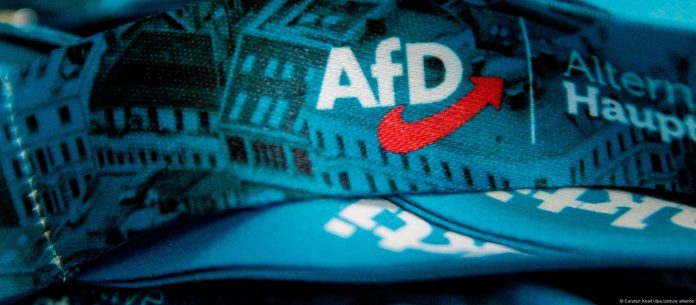Germany’s domestic intelligence agency has classified the far-right AfD party as an extremist group, sparking a diplomatic dispute with the United States.
On Friday, the BfV intelligence service expanded its previous designation of some regional AfD branches to include the entire party. The agency stated that the AfD was attempting to “undermine the free, democratic order” in Germany. This classification allows authorities to monitor the party more closely, including the interception of communications and the use of undercover agents.
The BfV said that the AfD’s platform, based on an ethnically and ancestrally defined concept of the people, “devalues entire segments of the population in Germany and violates their human dignity.” The agency also criticised the party for its anti-migrant and anti-Muslim rhetoric, claiming it stoked “irrational fears and hostility” towards these groups.
US politicians respond with criticism
The move quickly drew criticism from US politicians. US Senator JD Vance, who met with the AfD leader in Munich earlier this year, accused Germany of “rebuilding the Berlin Wall.” Vance argued that the political establishment, not the Soviets, was responsible for dividing Germany once again. He added that the AfD was now “the most popular party in Germany.”
US Secretary of State Marco Rubio condemned the decision, calling it “tyranny in disguise.” He urged Germany to reverse its stance.
Germany’s foreign ministry responded directly to Rubio’s comments on social media. The ministry defended the decision, describing it as “democracy in action.” It explained that the move followed a “thorough and independent investigation” aimed at protecting the constitution. The decision can be appealed.
“We have learned from our history that right-wing extremism must be stopped,” the ministry said.
Figures like Elon Musk, a supporter of US President Donald Trump, have also defended the AfD. Musk spoke at a campaign rally for the party in February, praising its commitment to preserving “German culture and values.”
The AfD achieved significant success in Germany’s February election, winning 20.8% of the vote. This marked a sharp increase in support, making it the strongest showing by a far-right party since World War II. The AfD came second only to the opposition conservatives, led by Friedrich Merz.
Despite its growing popularity, the AfD has faced criticism for antisemitic incidents and inconsistent views on Israel and the Gaza conflict.
